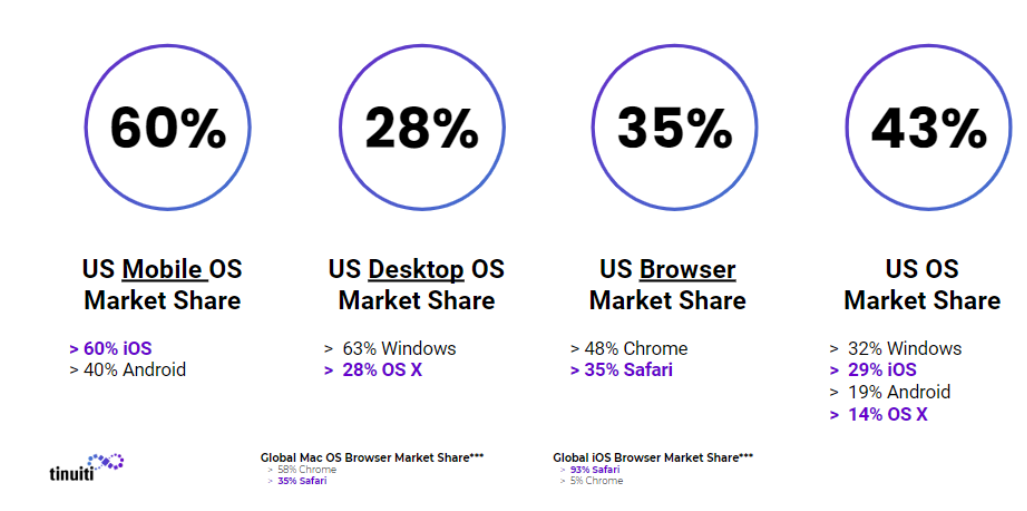What is Intelligent Tracking Protection [And Its Relationship to Cookies]

Introduced on Apple’s Safari in 2017, Intelligent Tracking Protection (ITP) prevents the ability to track individuals by blocking third-party cookies, fingerprinting, and more. Here’s a closer look at how ITP works and the impact it will have on advertisers in 2021.
According to Apple:
“The goal of ITP is to limit tracking while still enabling websites to function normally. ITP works by learning which domains are used to track a user and then immediately isolating and purging the tracking data that they attempt to store on the user’s device. The process of learning about domains uses machine learning and happens on devices, so it doesn’t share the user’s browsing history information with Apple. This on-device approach applies the same high standard to every website that is visited. And because ITP is turned on by default, there is no need to change anything in Settings or Safari preferences to receive tracking protection.”
Every iOS browser (Chrome, Safari, Firefox) was required to have ITP on default by the end of 2020. Enhanced Tracking Protection (ETP) is Firefox’s similar version and Google is previewing their Privacy Sandbox solutions in March ahead of discontinuing cookies.
According to an article by Forbes, Apple first introduced Intelligent Tracking Protection (ITP) in 2017, but the latest update creates a new set of challenges for advertisers, publishers, and tech vendors that make money from online behavioral advertising (OBA), attribution, web analytics, testing, and personalization.
Roughly half of the users on the internet utilize a browser other than Chrome, and those browsers, like Safari, Firefox, Edge, and Brave already block third-party cookies and tracking.

For almost 3 years, Apple has been aggressively updating the algorithms to address workarounds such as fingerprinting and CNAME Cloaking, a technique used to hide the cross-site URL to make it look a first-party one. Today, they continue to combat browser-side circumvention from ad-tech companies including Facebook, Adobe, and Google.
As a result of ITP, inflation in organic traffic data is expected. We also anticipate there will be an impact on attribution and Media Mix Modeling (MMM) and segmented incrementality (aka the key to measuring ad effectiveness) will become more important. Why?
Cookies track explicit or distinct conversions while MMM looks at overall marketing spend allocation. In the absence of explicit conversion info, MMM can create a cause-and-effect model. Creating a MMM for this year (2021) is critical because you can run it in parallel with current attribution efforts to have more confidence in your model, whereas next year that information won’t be available when cookies go away.
According to Nanigans, while focusing on return on ad spend (ROAS) is certainly important, it doesn’t provide marketers with the insight that’s necessary for determining the effectiveness of their retargeting efforts, and the amount of budget they should dedicate to running retargeting campaigns. Incrementality helps advertisers figure out if they’re successfully allocating retargeting ad spend.
In response to ITP (and other recent privacy policy changes including IDFA and CCPA), the ability to understand audiences is more important than ever before and the value of first-party data is magnified.
Advertisers should take stock of all third-party dependencies (including all solutions you have that place cookies, tags, scripts, pixels. etc.) There is no better time than now to start implementing Mixed Media Modeling. Determining where and how conversions are occurring is crucial for measuring the performance of your media channels — only then can you adjust your budget to drive the most impact with your marketing dollars.
To learn more, here’s an overview of how media mix modeling and how businesses can use analytics to drive smarter ad spend decisions.
Online privacy is here to stay. Check out “The Future of the Web” to find out everything you need to know about the new restrictions, cookies, IDFA, first-party data, and all things privacy from our Tinuiti experts.
